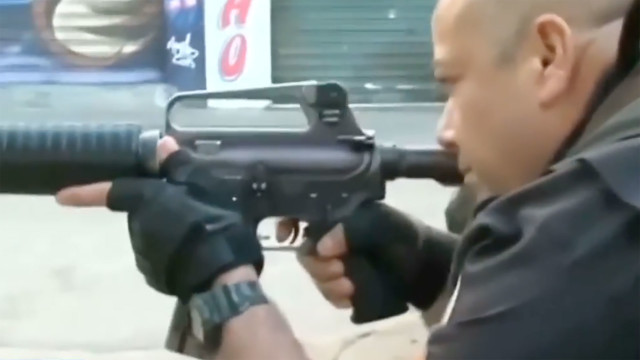Violent crime and armed gangs are so out of control in the Brazilian City of Rio de Janeiro that the president has called in the military. Brazilian President Michel Temer signed an emergency decree ordering the country’s armed forces to take over policing duties in Rio de Janeiro through the end of the year.
The emergency measure is the first of its kind since the end of the military dictatorship in 1985.
CGTN’s Lucrecia Franco reports.
Soldiers patrolling the streets of Rio de Janeiro are a common sight. The military are called every time extra security is needed but from now until at least the end of the year, they will provide the area’s primary law enforcement.
Shootouts between drug gangs and the police take place regularly, while incidents of gang violence and robberies also marred the recent Carnival celebrations. Official figures show an eight-percent increase in killings in 2017 over 2016, and a 26-percent jump since 2015.
Comparing the situation to a cancer, Brazilian President Michel Temer signed an emergency decree that orders the country’s army to take over for Rio’s police forces.
“Organized crime has virtually taken control of the state of Rio. It’s a metastasis that has extended throughout the country and threatens the tranquility of our nation,” Temer decried.
According to a recent Datafolha poll, Rio residents say security is a major concern with more than 70-percent saying they would move to another city if they could. But now, opinions are mixed about the military intervention.
“I don’t agree with it and I am weary because it is an election year that starts with an intervention and we don’t know where it will end,” said Luis Carlos Carvalho, a retired teacher.
“I don’t care if it’s the army, the navy, as long we have the freedom to come and go and we don’t have that and innocent people pay the price. All I want is security,” commented Edvaldo Costa, a local street vendor.
The decree still needs the approval of Congress, but that’s widely expected in the coming days – making this military intervention the first of its kind since Brazil’s return to democracy in 1985, after 21 years of military rule.
President Temer, whose approval ratings are in the single digits, said he will also create a Public Security Ministry to coordinate security operations nationwide. Some analysts, however, say the measures may be motivated more to help improve his image as a “law and order” leader – ahead of the October presidential elections.
 CGTN America
CGTN America

